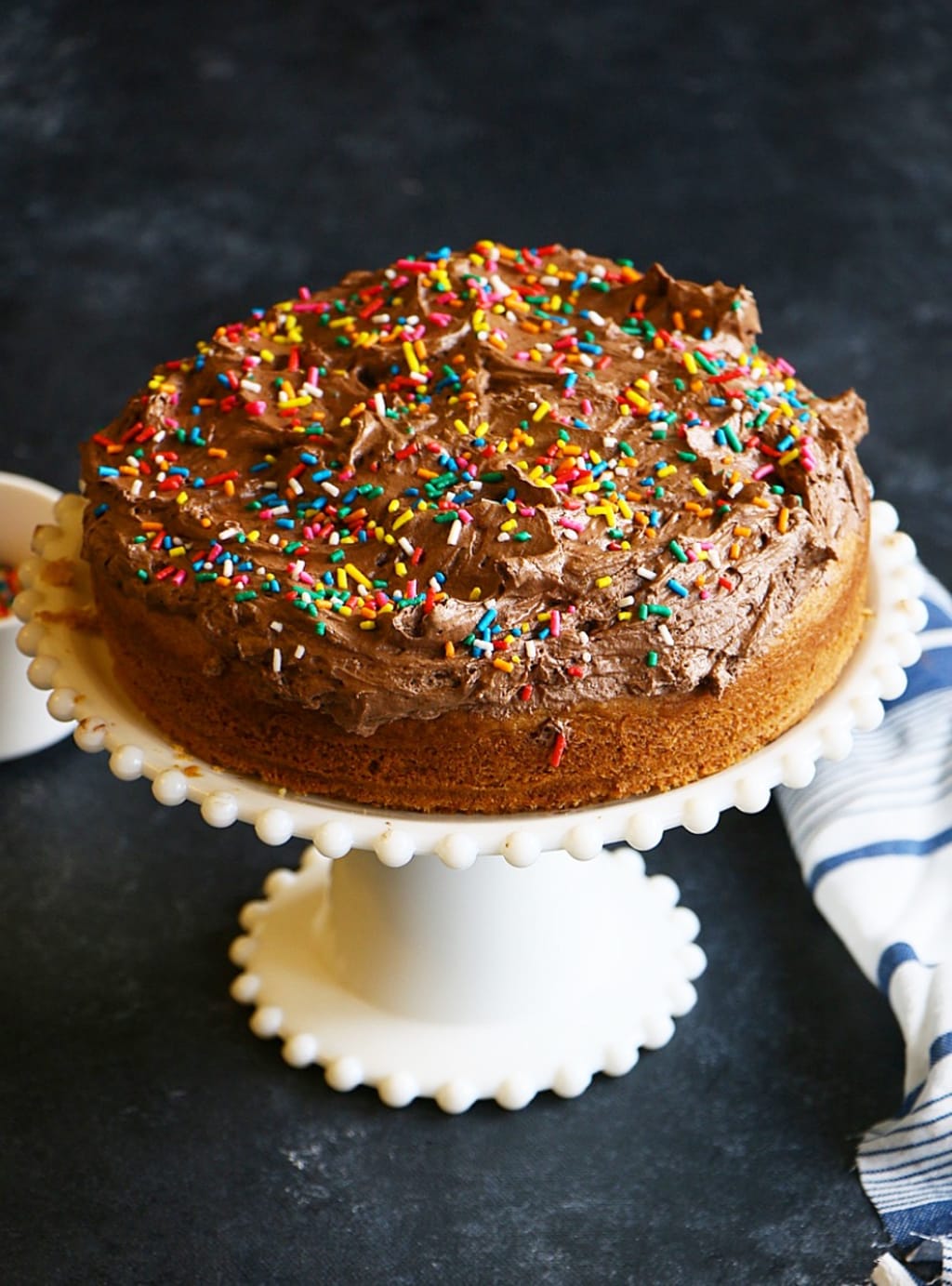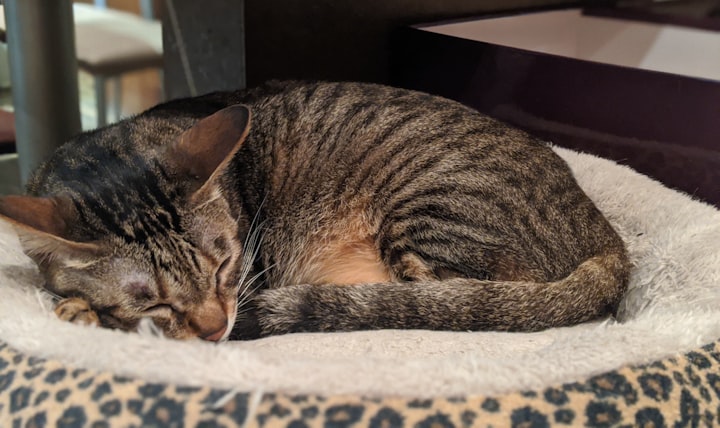
Mr. Parvati stepped out into the brisk morning air. A man of cleanliness and order, he was surprised to see his tie was off center. Although he didn’t have anywhere to go, it still caused him stress. He straightened it and walked towards the lamppost, grabbing five pieces of mail and twisting back towards his front door, waiting until he was parallel with his walkway to step forward.
Most people would start perusing the letters right away, but Parvati was not that type of person. He held them carefully in his left hand and went inside, walking slowly to the table in his study. He placed the letters down neatly and sat on his chair before allowing himself to read the first name: Dr. Naples of Nuremberg
The next two were of similar nature, but Parvati was rather surprised to see the name on the fourth envelope: Claude Von Stout.
“Von Stout,” muttered Parvati, lightly banging his table. Although he had never met him, the French chemist had been his biggest rival for many years.
“What can he possibly want?”
Before opening it, he walked the cupboard, grabbing a pair of gloves and some tissues. With the envelope an arm’s length away from his body, he delicately cut through the top edge and slid out the letter. Seeing no residue, he gently leaned forward and sniffed the parchment. His keen senses didn’t detect any traces of poison.
Even so, he used his letter opener to unfold the page and read it from a standing position:
Dear Henrick Parvati,
My name is Claude Von Stout, and I have been an admirer of yours for many years. My humility is too great to presume you know of me, but my intellect discerns that you must.
I first heard of your work a few decades ago when I was researching Argon for the French government. Your work with noble gases was rather, dare I say, noble. You have been the epitome of dedication while leading the way in our field since the turn of the century.
After many years of admiration, I have finally worked up the courage to invite you to dinner at my home in Paris on the 27th night of this month of November. I am presently confounded by my research and need an expert eye.
I understand you are a busy man and will take no offense to rejection or postponement. Please respond by Monday November 21st at the latest.
Best Wishes, Claude.
“That arrogant fool.”
He tore up the letter and poured a glass of whiskey to help contemplate his decision; Refuse and he looked like a coward. Accept and he was weak.
Claude had probably invited him over to boast about being the most brilliant chemist in all of Europe. That, or he was going to poison him during dinner. Parvati wasn’t sure which was worse.
There was only one thing he could do.
“I need to kill Claude Von Stout,” said Parvati.
After accepting, Parvati spent the next few weeks planning. It took him a while, but eventually he came up with a plan so simple it was sure to work; he was going to poison Claude with chocolate cake.
He carefully prepared the cake the evening before their dinner and set out to Paris by train the following afternoon.
When he arrived, his hand was still as stone as he raised it above his head and knocked on the door. It wasn’t long before it swung inwards, revealing a short old man with a thick grey beard and dark black suit. Slouching forward, he ushered Parvati into the room.
“Bonsoir, Parvati. I am Alfred, keeper of Von Stout’s estate. Please come in.”
He reached down for the bag with the cake, but Parvati held it firmly.
“Careful with that.”
“I’ll make sure to bring it out after dinner. Please be seated, Von Stout will see you soon.”
A short while later, Alfred’s wobbly steps led the way into an enchanting dining room. A large oak table sat beneath a golden chandelier, but Parvati only had eyes for the man on the other side; Claude Von Stout.
There was no mistaking the black handlebar mustache and oversized oval spectacles that he had seen in the paper far too often. He was much taller than Parvati imagined.
“I will leave you two to get acquainted.”
Claude Von Stout stood up and bowed, “Enchanté. The great Henrick Parvati. It is the honor of a lifetime.”
Claude gestured at the seat across from him and he sat down.
“My pleasure as well. Your work over the last decade has been rather … adequate.”
Even during a façade, Parvati couldn’t bring himself to compliment his nemesis, who was becoming less intimidating by the moment. He wasn’t sure what to expect, but Claude’s voice was shaky, his speech informal, and his face appeared greasy.
“You’re too kind, Henrick.”
Before Parvati could respond, the servant was back in the room with a rolling table that held two silver platters and a bottle of wine. Alfred grabbed one of them and lifted it to his chest, facing Parvati.
“Coq Au Vin,” said Alfred, uncovering the lid. Waves of onion and garlic rose from the dish.
“Very well,” said Parvati, turning and grabbing the other platter. He placed it in front of himself so that he would have the dish intended for Claude.
Without skipping a beat, the servant took the other platter over to Claude.
“Cabernet?”
His instinct told him to refuse, but he decided he would play Claude’s games.
“Oui.”
He watched carefully as the servant used a bronze corkscrew to open the bottle. He leaned closer as it popped, sniffing the aromas. The Cabernet smelled untampered, but he refused to take any chances.
“In my culture, it is quite rude to take the first sip,” said Parvati, catching the servant by surprise, “I insist you pour for Claude first.”
“We cannot insult our guest,” said Alfred as he walked over to Claude and poured him a glass.
Parvati watched closely as he took a sip. Satisfied, he enjoyed a taste as well while Alfred left the room.
Dinner was flavorful, but Parvati was too anxious for dessert to enjoy it, and he zoned out while Claude rambled on about distilling liquid hydrogen. As he began to ask a follow-up question, Alfred rolled back into the room with two pieces of cake.
Before Parvati could choose the one he wanted, Alfred placed them on the table. Claude took his fork and slowly cut through yellow sprinkles and brown frosting to a chocolate interior. It appeared richer than Parvati remembered. Claude let the piece linger on his fork and stared over at Parvati.
Of course, he was suspicious. To ease his doubts, Parvati took a bite of his own slice, licking his lips as Claude brought the fork up to his mouth and swallowed.
It was over. If he avoided being poisoned himself, Parvati would be left as the greatest chemist in all of Europe. That thought put him on edge, however, and he was nervous when Claude walked over to his cabinet and brought a bottle of whiskey to the table. He filled two glasses with ice and poured a drink for both of them.
As Claude returned the bottle, Parvati lifted up both glasses, purposely making enough noise for Claude to hear before setting them down. When Claude returned, he quickly chugged his drink while Parvati confidently sipped his own.
“You are going to die, Claude.”
“I am told we will all die someday.”
“And for you, someday is today.”
Claude looked down at his drink, perplexed.
“Don’t act like you weren’t trying to beat me to the punch,” said Parvati, wiggling his fingers together with glee, “I know you poisoned my whiskey.”
“I didn’t poison your whiskey.”
“Correct! You poisoned your own, knowing I would switch them. But what you heard while returning the whiskey wasn’t me switching the drinks. It was me pretending to switch the drinks and making sure you heard. I was one step ahead of you, Claude!”
“You sound mad, Parvati. I didn’t poison either of them.”
“You didn’t?”
“No.”
Parvati didn’t believe him.
“Well, it doesn’t matter because I poisoned the cake. I carefully placed every sprinkle down, and the primary colors signified poison. Luckily for me, Alfred gave you the yellow sprinkle slice.”
“I know,” said Claude, startling Parvati.
“What do you mean, you know?”
“When you replied to the letter stating you would bring chocolate cake, we were suspicious. When you got here, we noticed the unusual sprinkle patterns and a hint of strychnine.”
“But you ate it.”
“We had a piece of cake waiting and we redid the sprinkle pattern the exact same way that—,”
There was a muffled noise that caused Claude to stop talking. Instead, he put his hand up to his throat, stared into the dark brown eyes of Parvati, and fell onto his stomach, dead.
Parvati stood up as Alfred came running into the room.
“We were so careful,” lamented Alfred, “How did you do it?”
Parvati raised his hand proudly, “I shot him … with this gun.”
“Oh. I didn’t suspect that.”
“It’s always good to have a back-up plan,” said Parvati, arrogantly.
“I suppose it is.”
“He wasn’t as brilliant as everyone thought,” said Parvati, sliding the gun back inside his dinner jacket and taking a final sip of his drink, “I suppose you’ll be needing a new home to serve.”
“I hadn’t thought of that yet,” said Alfred, massaging his chin, “And how did you avoid the drinks?”
So it was poisoned after all.
“I pretended to switch them out, knowing he could hear me.”
“I see,” said Alfred, curiously, “But they were both poisoned, sir.”
“Both? That can’t be right. He drank his.”
“He poisoned the ice cubes. He had been working on it for months, timing out how long it takes for the cyanide to melt into the drinks. He only planned on using it if you let him eat the cake.”
“That’s why he chugged his drink,” said Parvati, whispering to himself. “Poison in the ice cubes… brilliant. He was always smarter than me.”
Parvati put a hand up to his throat as his body started to seize. He braced himself against the table before losing control and falling to floor.
The servant stood there for a moment before smiling, “Smarter than him.”
“I knew he would admit it,” said the servant, taking off his fake beard and tossing it to the ground as he bent towards Alfred’s body. He grabbed the spectacles they had switched out earlier and patted him on the shoulder, “I am sorry you had to die, I thought I had everything accounted for. A chemist resorting to a gun, how shameful.”
With that, the real Claude Von Stout grabbed the rest of the chocolate cake and sat down; he had been wanting to try it all evening. He took a knife and hovered above the chocolate, unsure of himself. “Which colors had been poisoned?”
He couldn't remember.
“Silly me,” continued Claude, slapping himself lightly in the head, “I’ll just finish his piece.”
Claude dipped his fork into Parvati’s half-eaten slice of cake. He also grabbed the drink by his side and raised it to his mouth, stopping his hand at the last moment.
“Oh dear me,” said Claude Von Stout, barely avoiding death, “Alfred, can you come clean up this mess!”
Claude shook his head, realizing his mistake again. He would need to put a note in the newspaper for a new servant first thing in the morning, but he supposed he could handle it for one night. He was Claude Von Stout after all; the most brilliant chemist in all of Europe.
He knocked the drink off the table, just to be sure, and took a bite from the late Henrick Parvati’s last slice of cake.
It was delicious.
About the Creator
Matthew Puzycki
Licensed Clinical Social worker and author. I have currently published one young adult novel on Amazon, entitled Forming the Javelin. I am also working on my second book, another YA about a secret psychic society. Thanks for the support!






Comments
There are no comments for this story
Be the first to respond and start the conversation.